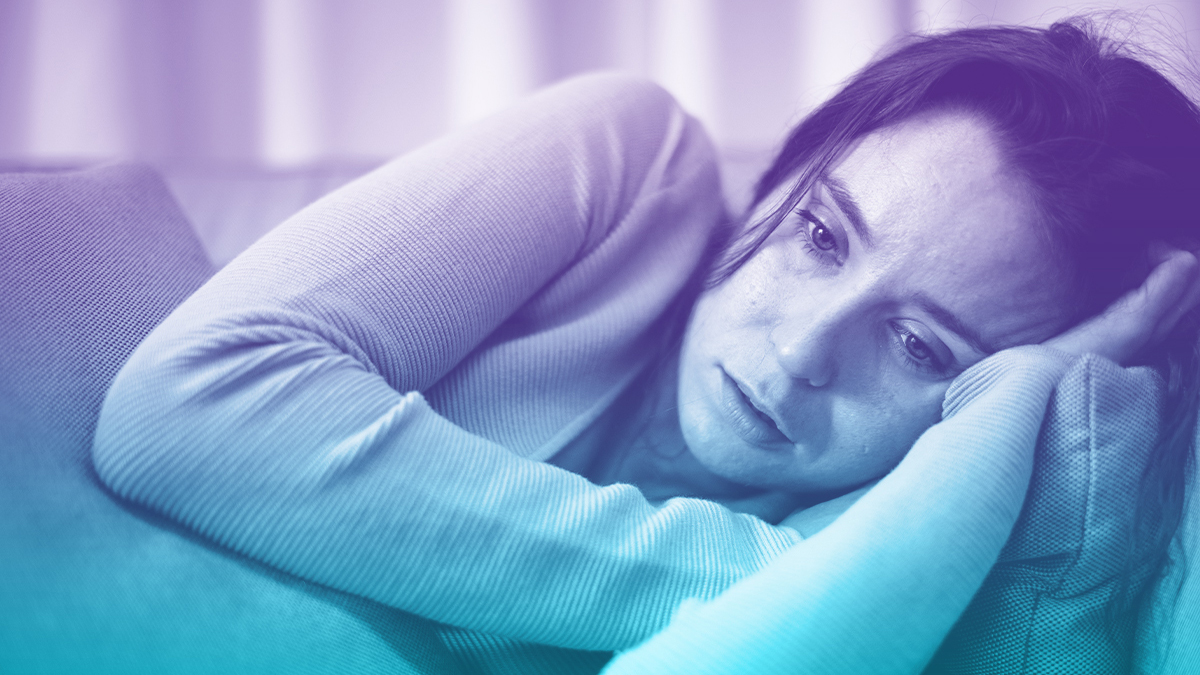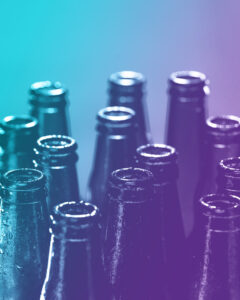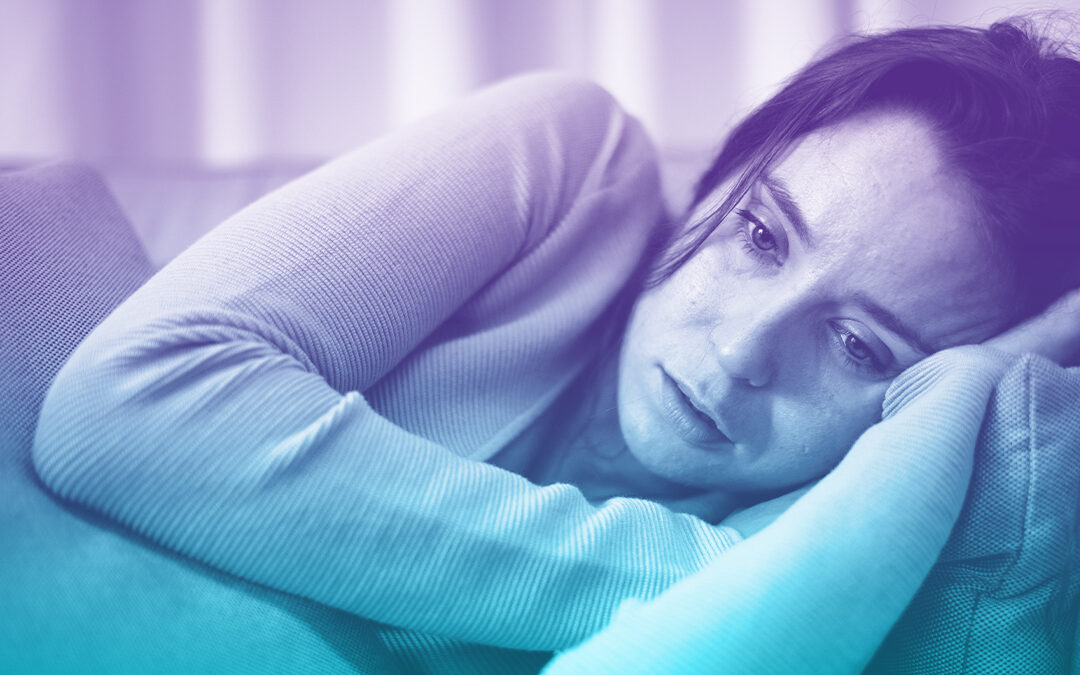Anger And Alcoholism
You are not an angry person, never really have been, and you have always been patient in tough situations. Even when having some drinks with the guys watching the Tampa Bay Bucs get pummeled again, they would get rowdy and mad, but not you. You have even seen some of your buddies get themselves in trouble for voicing their opinions too loud.

But your mom just died, and you are finding yourself in a dark place you are unfamiliar with. Your wife sees the grief you are feeling, and she tries to help the best she can. But it only makes you angrier, not at her, but at the world now that you’ve lost someone you loved deeply. Trying to control these feelings, you turn to alcohol to numb the pain. She sees the bottles stacking up, the empty cans lying around your office. She confronts you one night after you have finished a pint of whiskey. Before she can even finish a sentence, you lash out, threatening her and screaming every obscene word that comes to your mind. You blink and see her face, streaming with tears and fear in her eyes. She runs out and slams the door, leaving you in the mess you made. Why did you get so mad? Where is all of this anger coming from?
In Florida, approximately 200 deaths occur each year due to domestic violence. Of the perpetrators, over half are found to have a substance use disorder. At Clean Recovery Centers, each of our facilities has a certified rapid-resolution therapist onsite to heal from past traumas that may be causing alcoholism and anger. Let’s take a look at the reasoning behind why alcohol seems to make anger worse in today’s blog.
Signs of Alcohol Use Disorder
When it comes to signs of alcohol use disorder, some may be easy to spot. Others may be more difficult, and hiding and sneaking alcohol may go unnoticed for a little while. Some common signs include:
- Wanting to stop drinking but being unable to
- Spending more money on alcohol than intended
- Losing interest in hobbies and activities
- Relationship difficulties such as arguing about drinking
- Experiencing alcohol withdrawal between drinking sessions
- Sneaking alcohol when no one is around
Depending on the stage of alcoholism you or a loved one are in, these signs can range in severity or even not appear at all. Every person living with alcohol use disorder will go through their own trials and tribulations.
Can Alcoholism Lead to Physical Abuse?
When alcohol is consumed, it hinders cognitive function within the brain. This means that the mind’s ability to read situations and people is impaired. Someone could accidentally bump into you or step on your foot and the brain reads it as intentional and a challenge. Your partner may say something with a negative attitude and the brain’s response will be more irrational than it usually is, making it difficult to react in a healthy way. Physical abuse can result from these scenarios as the brain makes them feel like attacks, even when the situation is harmless.
Alcohol Affects How the Brain Functions: Here’s What That Means for Your Anger
 Besides cognitive function, alcohol can amplify moods. If you are already feeling happy and upbeat when you begin drinking, alcohol will add to those feelings. But, if you are in a negative mood – stressed, disappointed, sad – alcohol will bring those emotions forward. This is why it is easy to become angry when drinking; inhibitions are lowered and paired with an amplified mood. Even if you are not typically an angry person, alcohol can bring angry feelings to light.
Besides cognitive function, alcohol can amplify moods. If you are already feeling happy and upbeat when you begin drinking, alcohol will add to those feelings. But, if you are in a negative mood – stressed, disappointed, sad – alcohol will bring those emotions forward. This is why it is easy to become angry when drinking; inhibitions are lowered and paired with an amplified mood. Even if you are not typically an angry person, alcohol can bring angry feelings to light.
It is important to note that binge drinking can contribute to anger. When the amount of alcohol in the body climbs at a fast rate, blackouts can occur. During a blackout, the person is not creating long-term memories, and bursts of anger won’t be recalled the next day. This can cause relationship troubles and legal problems if an angry alcohol blackout occurs in public.
The Cycle of Anger and Alcoholism: How Alcohol Makes Anger Problems Worse
It is hard to say where the cycle begins first – with alcohol or with anger. For those living with undiagnosed anxiety and depression, anger and irritability may already be a part of their everyday life. This is where some begin to self-medicate with alcohol, hoping that it will change the way they feel. As we discussed above, alcohol only amplifies the emotions that are being felt. At first, alcohol may provide a little relief from mental health concerns, but as time goes on, it will only make mental health worse.
For those who are already managing problem drinking or alcoholism, a similar pattern can emerge. Prolonged alcohol use can take a toll on finances, relationships, and careers. This can lead to anger and lashing out against loved ones. With that comes guilt, and depression can develop or worsen. No matter how the cycle began, alcohol and anger make for an unhealthy pair.
Anger Management and Alcohol Addiction
Chronic anger often stems from a life event, whether in early childhood or recent years. Anger causes the body to go into fight or flight mode. The heart races, muscles tighten, and the brain plans for attack. This can lead to heart complications such as heart attacks, strokes, and high blood pressure. Learning to manage anger without alcohol is key to preventing these from happening. Some ways to manage anger include:
- Deep breathing exercises
- Practicing yoga or meditation
- Redirecting or walk away
- Prioritizing your needs
- Communicating with partners, family, and friends
Alcohol often seems like a good “fix” when mental health symptoms become too much. In actuality, alcohol will make these symptoms seem stronger and more difficult to handle. For those already taking medications for mental health conditions, alcohol can make symptoms worse or contribute to alcohol poisoning. Always consult your doctor if you drink alcohol with the medications you are taking.
The Healthy Relationship Between Recovering Alcoholics and Anger
Recovery is a process, and learning the different emotions, triggers, and past events that led to alcohol use disorder can be overwhelming. It is important to note that in early recovery, anger may still have a significant presence. You may feel anger about people you have lost, even after getting treatment. You may feel anger about losing a job. You may feel anger about a pending legal case you have to face. Regardless of what anger you are harboring, there is hope that it will end. By finding a therapist to work with, discovering healthy coping skills, and trying new hobbies, anger will begin to dissipate from your life as you focus on new and exciting things and leave behind past traumas and triggers.
Treatment for Anger and Alcoholism at Clean Recovery Centers
Being angry all the time is no healthy way to live. Alcohol may make you feel good now, but in the end, it will just increase the anger inside. By seeking treatment for alcohol use disorder, you will be able to address where the anger is coming from, and how to move forward without it on your shoulders. Therapy, skill-building, and talking with peers are foundational to a successful recovery from alcohol use disorder.
If you or someone you love is living with anger and alcoholism, it’s never too late to reach out for help. Clean Recovery Centers not only treats alcohol use disorder, but also addresses and treats mental health conditions as well. Our dedicated team is compassionate and ready to help you get clean, live clean, and stay clean. Call us today at (888) 330-2532 to learn more about our program.
FAQs About Alcoholism and Anger
Why am I an angry drunk?
Alcohol lowers cognitive function, making it difficult for the brain to interpret situations and cause an angry response.
Why does alcohol cause anger?
Alcohol amplifies mood, meaning if you are drinking because of stress or sadness, anger is likely to emerge.
Is an angry drunk showing signs of mental health disorder?
Mental health conditions such as depression, anxiety, and bipolar disorder can affect mood, and alcohol will amplify emotions. Excessive anger while drinking could be an indicator that a mental health disorder is present.


